Uneasy or frustrated?
With the government on the retreat in the political arena, its partners woke to more gains in flesh
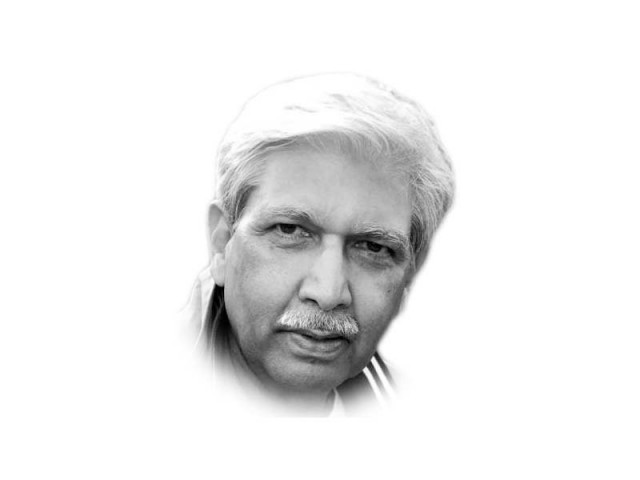
The writer is a retired air vice marshal and a former ambassador who pursues interests in politics, security and strategy. He tweets at @shazchy09. Email: shhzdchdhry@yahoo.com
IK has braved on all the same, carrying forward his campaign-winning slogan of accountability when NAB seemed to be closing in on those IK thought had plundered when in power. He may have in fact overplayed it a bit, bordering on compromising perceptions of NAB’s independence, but so huge was the pull of actually bringing the Sharifs and the Zardaris to the dock that he kept building on it long after he had assumed power.
As the Prime Minister of the entire country and all the people, whether in jail or under trial, he needed to let law take its course without appearing to cheerlead the process. He may have been forced to such a recourse as a tactical ploy to divert people’s attention from their sufferings in a badly-run economy and an inability to deliver order in their lives. Or, he simply may have believed far too much in bringing to book those who had stolen from the people for private gains. As he went on unrestrained, framing those in the dock, he turned it into a personalised fight.
This resulted in political polarisation and lack of coherence in political institutions rendering those dysfunctional. The parliamentary process suffered; legislation became impossible; and the state and its people became rudderless.
This state of affairs began to worry many including those who were incessantly concerned with elements of comprehensive national security. With governance off the hook and without direction and the economy in dire straits, the military on its own could not instill confidence and a sense of security among people and project across its borders the total national capacity to thwart aggression. It is possible that the concern may have been voiced in many meetings between principals with suggestions that a working adjustment needs to be made with all actors in the decision process. This principally meant that those in parliament and the provinces need to ensure there was some semblance of functionality and direction. Apart from that, IK’s mantra of ‘hanging the corrupt’ and ‘no NRO’ was relentless. What happened next is only a conjecture.
With IK not helping much in improving interaction with the opposition, sustaining fratricidal instability, an indirect approach to instead placate the opposition was attempted. This carried its own cost which was significant given the hype that began to get associated with punishing the ‘looters’ of public money. It was a typical case of the need for immediacy in internal stability weighing against morality in public conduct. Only time will tell whether rapprochement with political players was the right call against the need to let law take its course. For the moment all those under any kind of judicial duress now stand relieved. The Sharif brothers are in London direct out of the jail while Zardari and his other party members gained from the mass reprieve. That has relieved some of the agitated atmosphere as the PML-N remains conveniently quiet and the PPP isn’t playing the spoiler. Can IK gain from this virtual and uncontested eminence in political space? Not by the looks of it. He seems terribly aggrieved.
The government willy-nilly went along an imposed ‘NRO’; or more aptly, none seemed to bother much with it as the system took a corrective course. It became a massive embarrassment for IK personally because he had touted far too loudly of never agreeing to a political compromise. The system forced him into one. Whether he should have taken as fixed a stance on it is another question given that Pakistani politics and any politics does need some accommodation if indeed the journey must continue. Whether it should have come at the cost of the rule of law is what historians will decide in the future.
That is when IK loudly complained to the then CJ, Asif Khosa, to stand with the law and against the powerful, literally framing the judicial process for compromising with the convicts and the indicted. The means to the escape of those incarcerated was through a judicial process as the prosecution seemed to abdicate a resolute defence against the petitioners’ plea for relief on various grounds, chief among those was sickness needing immediate medical attention. Asif Khosa obliged by pulling the powers-that-be before it for issues at hand. A few days in November as a consequence were the most nerve-racking. And even though the matter was subsequently resolved by the Parliament, it has left its scars. Of which one exhibits in IK’s edginess of these days.
Matters between institutions have thus been a bit testy even if the Parliament seems to have come alive – a desired fallout of the initiative. There are other plausible variations of this most significant political development, less to do with the government; it should suffice that a functional political environment was central to creating a more amenable and stable functioning even if it meant easing the law a bit to bring relief to some. Revised NAB ordinance will further ease the opposition’s fears as the system goes through the process of its ultimate defanging. The courts are making the right noises but will, out of necessity, defer to the popular will of the people through their representatives in the parliament.
With the government on the retreat in the political arena, its partners woke to more gains in flesh. Again these smaller constituents tend to over-read their nuisance mostly. The recent disaffection in the ranks points towards such a sentiment to seek more space. I think it has been well managed by IK by not bowing to it. But to hold out on some strategic corrections that need to be emplaced and stonewalling those for standing to pressure, is as much foolhardy which will only strategically hurt the long-term prospects of the PTI.
In such an environment apprehensions and misapprehensions are bound to pop up, further predisposing one to believing in conspiracies. That moment seems to have arrived rather early in PTI’s turn. That need not be the case. A more rational review of the shortcomings and an honest introspection may just bring to fore that there are more external voices trying to help the PTI than damage it. What else may any political leader hope to achieve – uncontested political space where IK alone reigns. The Sharifs have bartered their noise for freedom and the PPP will bide time for another day. IK has an open field. He and his team only need to prove themselves. A popular folk-tale prays: ‘Gallian ho jaan sunjian, vich Mirza yaar phiray’. ‘May my Love reign supreme (the empty lanes of politics)’, loosely. He has it all.





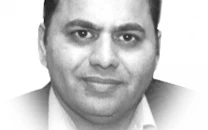

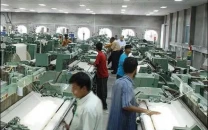
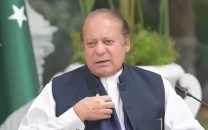
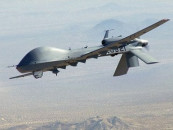
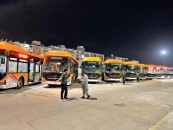
1726134115-0/BeFunk_-(41)1726134115-0-208x130.webp)
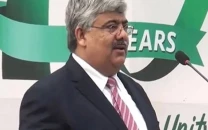



COMMENTS
Comments are moderated and generally will be posted if they are on-topic and not abusive.
For more information, please see our Comments FAQ